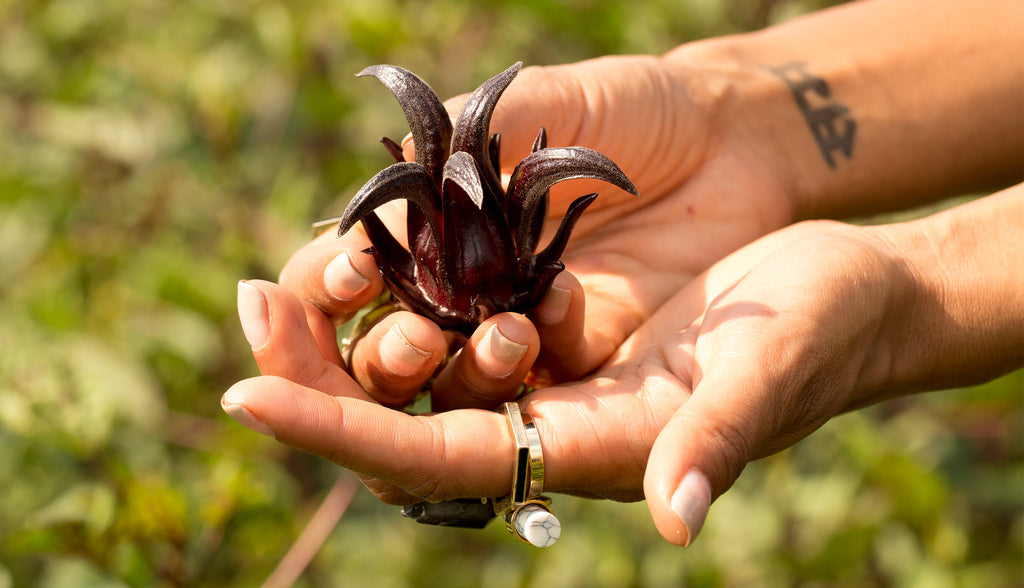Your skin absorbs 60% of what you put on it directly into your bloodstream.
Think about this for a second. Our skin is permeable — those who hate pills sometimes take medication via skin patches.
Despite common sense and a lot of consumer protests, our personal care products may contain ingredients, such as formaldehyde, that are banned in many other countries. The Environmental Working Group, a nonprofit that fights to remove toxic ingredients from popular products and produces the excellent Skin Deep Index, had this to say about sunscreen:
"Almost three-fourths of the products we examined offer inferior sun protection or contain worrisome ingredients like oxybenzone, a hormone disruptor, or retinyl palmitate, a form of vitamin A that may harm skin. And despite scant evidence, the government still allows most sunscreens to claim they help prevent skin cancer."
Your mani-pedi routine also likely contains toxic, endocrine-disrupting chemicals. Last October, the EWG published findings on OPI and Wet N Wild nail polish: "The results represent compelling evidence that TPHP, a suspected endocrine-disrupting chemical also used in plastics manufacturing and as a fire retardant in foam furniture, enters the human body via nail polish.”
We are still learning about the levels of these types of substances that lead to disease. But wouldn’t you rather not have known about toxic ingredients in your personal care routine?
We know there’s a well-established revolving door between drug companies and government agencies, so more regulation might not help.
Which means you, the consumer, need to know what’s in your goop. You may also want to support the nonprofits that research toxic ingredients and fight for better laws to prevent them from entering our products.
I recently met with the head of the Environmental Defense Fund, Diane Regas, here in San Francisco, who told me something amazing. Do you remember hearing about infections that mysteriously spread among people living in FEMA trailers after Hurricane Katrina?
Turns out, these illnesses were caused by formaldehyde in the trailers these Katrina refugees were given by the government. The trailers were produced in China, where the use of formaldehyde is prohibited for domestic consumption. Yes, that’s right. Chinese manufacturers sold products to US consumers that would be banned in their own country.
This isn’t the fault of the manufacturers, who were fulfilling an order. It’s the fault of a procurement system in the US that prioritizes profit over people’s well-being, and the fault of our regulatory system.
Diane shared that EDF was responsible for a major overhaul of the Toxic Substances Control Act, which governs stuff like the use of formaldehyde in building materials.
But it will likely take many years before your products are safe. In the meantime, we recommend following the work of nonprofit consumer advocates like the Environmental Defense Fund and EWG, and buying products from brands that commit to high product safety standards and feature their ingredients prominently.
Here at LXMI, we take this very seriously — our lab partners have the tough job of formulating with ingredients that rank a 0 or 1 (the highest possible level of safety) on the Skin Deep Index. One of our favorite products is a single ingredient butter that comes from a nut — 100% Organic Nilotica, hand-collected from wild trees.
True luxury is the peace of mind that comes from knowing what’s in your goop.
xo
Leila





I absolutely love the pure nilotica melt it totally moisturizers my face without all the other stuff that breaks me out and doesn’t leave my face oily either. Great find.
Christina M Castellanos on